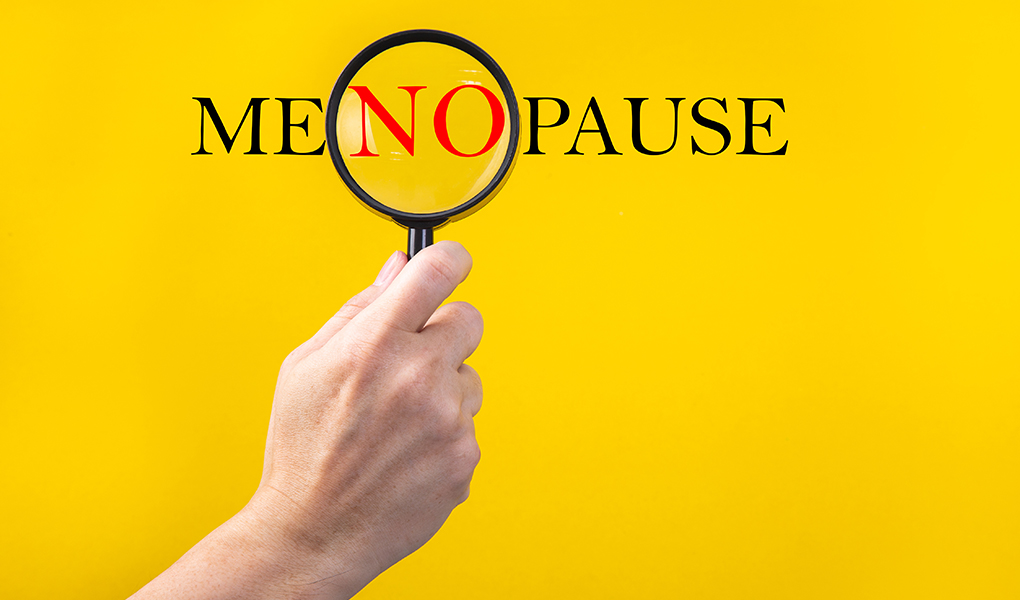Follow Us!
Patient stories, informative videos and much more on our social media accounts

Menopause is the period in women when fertility ends due to hormonal changes. A woman is said to have entered menopause if a year has passed since her last menstrual period.
During menopause, the secretion of female hormones, estrogen, and progestin decreases. The function of the ovaries slows down, and ovulation becomes irregular. Menstrual bleeding becomes irregular and eventually stops.
However, women do not lose interest in sex during menopause. On the contrary, most women feel better about this due to the absence of the risk of pregnancy.
The average age of menopause is 48-50, but this average varies from society to society. Women who are malnourished, underweight, vegetarians, have had their uterus removed, have had developmental delays in the womb, or live at high altitudes may experience menopause a bit earlier. Additionally, smoking women enter menopause earlier.
As life expectancy increases, the duration of a woman’s life spent in menopause is also increasing. In developed countries, menopause constitutes one-third of a woman’s life.
Monthly periods are the result of complex functions in the body preparing for pregnancy. The hormones released by the brain and ovaries cause egg development.
These hormones also trigger ovulation, which is the release of the egg from the follicle (sac) where it develops. Under the influence of these hormones, the inner lining of the uterus thickens in preparation for pregnancy, and if pregnancy does not occur, it is shed during menstruation. As a person ages, the ovaries also age; around the age of 40, the ovaries respond less to hormonal signals from the brain and produce less estrogen.
Periods become irregular, and during this pre-menopausal period, estrogen levels rapidly decline. Eventually, with the cessation of egg development and estrogen production in the ovaries, menstruation stops, and menopause begins. If menstrual delays exceed six months, a definitive diagnosis is made by measuring estrogen levels and the hormone that stimulates ovulation (FSH) in the blood.
The term perimenopause refers to the transition period from regular menstruation to menopause. During this transitional period known as perimenopause, the number of eggs in the ovaries significantly decreases, making ovulation occur less frequently.
Women usually experience their last menstrual period at the age their mothers entered menopause. Regardless of age, women who have had their ovaries surgically removed are considered to have entered menopause. Women who have had their uterus removed but still have their ovaries do not have menstrual bleeding, but they are not considered to have entered menopause as long as their ovarian function continues.
If a woman enters menopause before the age of 40, it is considered early menopause.
If your periods have stopped, simple blood tests can determine whether you are in menopause. Menopause is a gradual process. If menstruation has not occurred for 6-12 months, menopause may not have begun.
During this time, it is generally recommended to continue using birth control methods to avoid pregnancy. If you experience changes in your menstrual cycle, excessive bleeding, bleeding that lasts longer than usual, bleeding more frequently than every three weeks, bleeding after intercourse, or bleeding between periods, it is advisable to consult a doctor.
The most typical example of menopause symptoms is hot flashes. Sudden redness in the head, neck, and chest area, an increase in body temperature, followed by excessive sweating, are observed.
These complaints usually last for 1-2 years, but for 25% of women, they can last longer than 5 years. Although the exact cause is not known, it is believed that the most significant factor is the decrease in estrogen hormone levels.
There is thinning and loss of elasticity in the epithelial layer covering the vagina and urinary tract. Additionally, dryness in the vagina is another symptom. Although there is a general belief that mental health problems increase during menopause, studies do not support this.
The view that depression is more common during menopause is also no longer accepted. However, hot flashes can lead to a decline in sleep quality and consequently in the quality of daily life.
Typical symptoms include skin redness, breast pain, irritability, sleep disturbances, excessive sweating, fatigue, lack of motivation, excessive emotionality, and a depressed mood.
Other symptoms include increased wrinkles on the face, paleness of skin tone, thinning and hair loss, wrinkled and loose skin texture, age spots, nail brittleness, shrinkage of breasts, flattening and softening of the breasts, increased body hair, a tendency to varicose veins, abdominal fat accumulation and loss of firmness, thinning and wrinkling of vaginal walls, dryness, itching, a tendency to inflammatory diseases, pain during intercourse, urinary incontinence, and tingling sensation.
Let us call you as soon as possible regarding the issues you want to consult.


